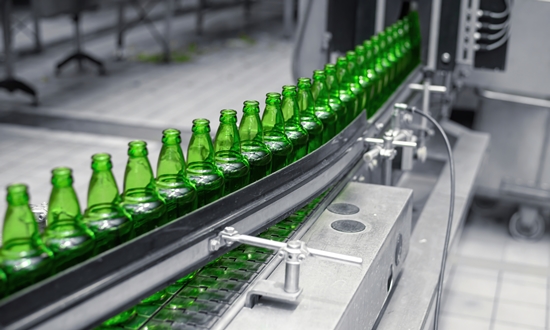 Home > News
Home > News
Under the new packaging extended producer responsibility (pEPR) scheme, the cost of collection and sorting is shifted from local authorities to producers.
British Glass is concerned that heavier containers like glass will incur higher levies – products in glass bottles and jars could be set have an additional cost in excess of 10p whereas products in plastic or metal containers will only have a marginal cost.
The industry association claims glass fees for beverage packaging will be around 49 times higher than other less recyclable materials, leaving brands with no choice but to move away from using 100% recyclable glass products.
It added that the move will lead to job losses in a sector which employs 120,000 in its supply chain.

Dave Dalton, chief executive, British Glass, at the Environmental Packaging Summit
Dave Dalton, chief executive, British Glass, said: “The Government has failed to listen to concerns from producers and trade bodies and is ploughing on with this ill-thought-out scheme which is a hammer blow to the glass sector and British manufacturing.
“British Glass supports the principle of pEPR and that packaging waste collection and recycling needs to be reformed to deliver a circular economy for the UK. However, this scheme will have a profound impact on competitiveness against other packaging formats – leading to job losses predominantly in the UK’s manufacturing heartlands. Prices will increase both for consumers and SMEs who are already operating on wafer-thin margins.
“The effect on the environment is equally depressing. The Government has a plan for a circular and zero-waste economy, yet the pEPR policy will incentivise more plastic – which is less circular than glass. We urge the Government to re-think this policy and meet with businesses and British Glass as a priority.”
British Glass and several large food and drink producers had raised concerns with MPs and Ministers on the pEPR policy’s negative impact.
Nick Kirk, technical director, British Glass, said: “The aim of pEPR is to drive away from difficult to recycle packaging materials to recyclable packaging materials, but the current policy will incentivise the move away from glass packaging to less recyclable materials such as plastic packaging. The proposed pEPR fees are calculated on the weight of packaging, however packaging is bought in units not weight, this will distort the packaging market as glass will have a substantial pEPR fee compared to competing packaging materials. Glass is 100% recyclable and is infinitely recyclable as it does not deteriorate on each recycle.”
British Glass said a 330ml glass beer bottle will have a pEPR fee of approximately 5p, with the addition of supply chain margins and VAT, and that the consumer will see at least a 10p increase in a beer bottle and more on larger soft drink, wine and spirit bottles, whilst metal and plastic beverage packaging will not be affected.
“We have already experienced the impact of brands moving away from glass, as they are now purchasing their packaging for 2025,” added Kirk.
“In addition, there has been an increase in the imports of empty glass packaging from countries outside of the EU and these countries are producing more carbon per unit of glass packaging.
“These imports can be at least 20% cheaper than UK-produced glass packaging and will be able to absorb the pEPR cost, which will lead to more imports and a negative impact on UK glass production, and ultimately more carbon into the global atmosphere. This shows a fundamental lack of understanding by the Government of the global competition the UK glass sector faces.”